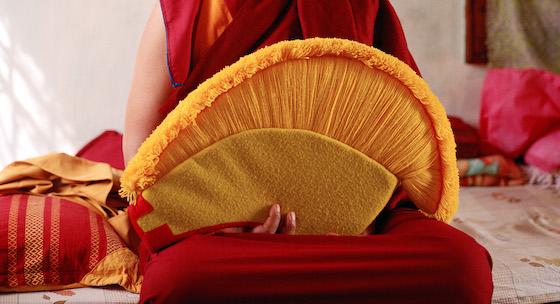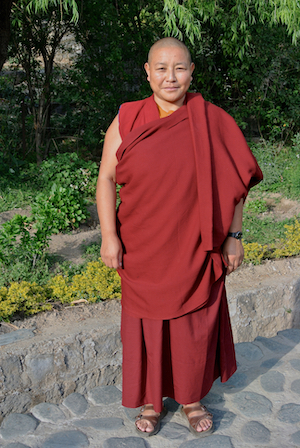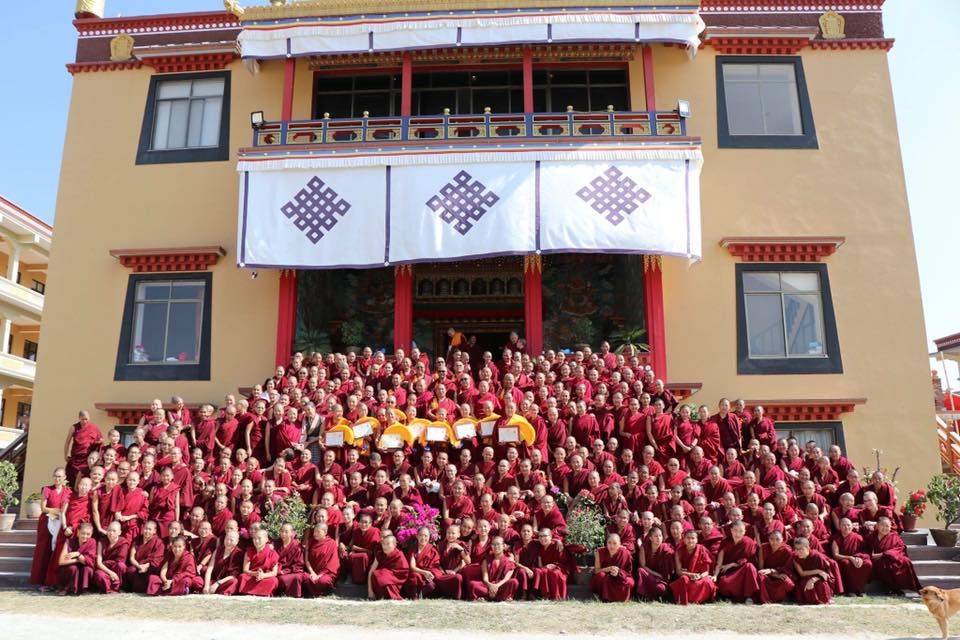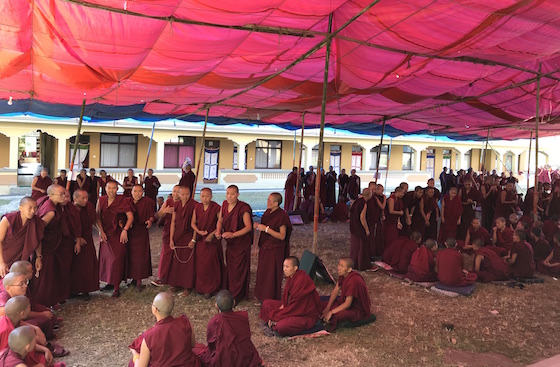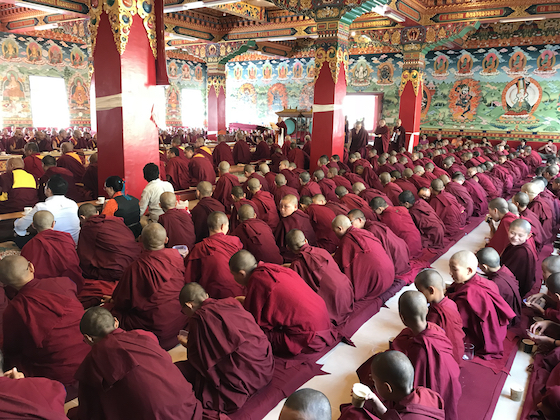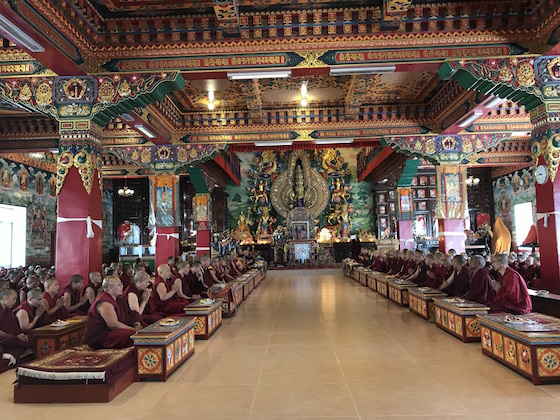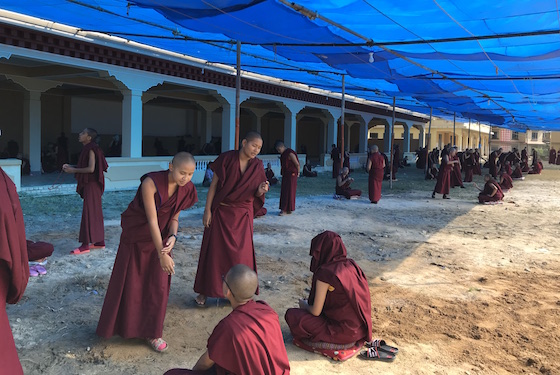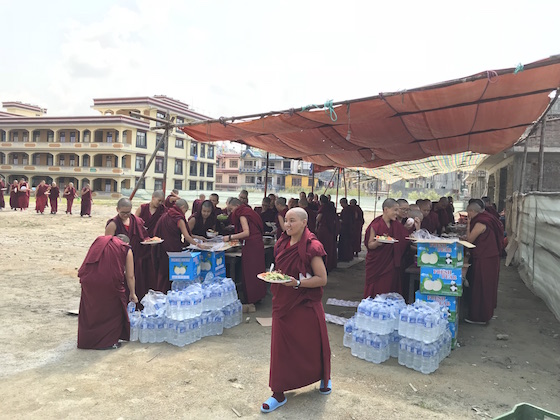Tibetan incense is an important part of Tibetan culture and is used as an offering and for purification, meditation, healing, and relaxation.
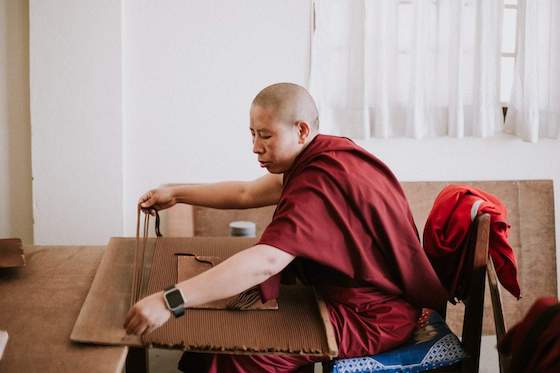
The nuns at Kopan Nunnery in Nepal make traditional, Tibetan-style stick incense. Income from the sales helps support the nunnery and, when purchased through the Tibetan Nuns Project, also helps support seven Tibetan Buddhist nunneries in India. Photo courtesy of DharmaShop.
The pleasing aroma of burning incense helps to calm one’s restless mind and helps meditators to focus on the breath.
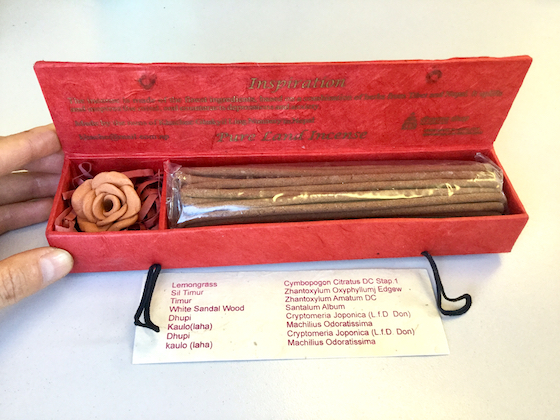
Our newest type of Tibetan incense available in the Tibetan Nuns Project online store. Inspiration incense is made by nuns at Kopan Nunnery and combines lemongrass, white sandalwood, and traditional Tibetan medicinal and aromatic ingredients.
Authentic Tibetan incense originates either from a traditional monastery or from a Tibetan medical institution. The formulations or recipes for incense may be many centuries old and follow a particular lineage which can be traced back to the originator.
The incense sold through the Tibetan Nuns Project online store is made in Nepal by the Tibetan Buddhist nuns at Khachoe Ghakyil Nunnery. The nunnery, also known as Kopan Nunnery, is located in the Kathmandu Valley and is home to about 360 nuns.
The various types of incense sold by the Tibetan Nuns Project are of the highest quality, using only pure natural ingredients such as high-altitude plants and woods with proven healing properties.
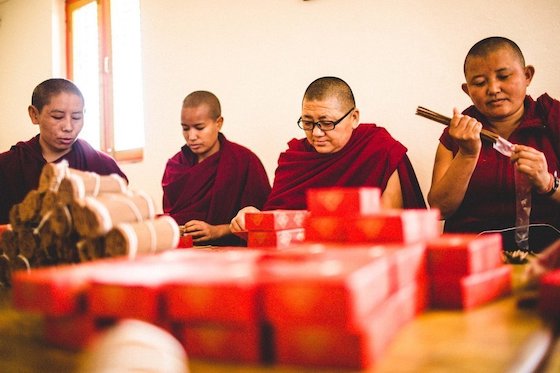
Nuns at Khachoe Ghakyil Ling Nunnery in Nepal making Tibetan incense. Photo courtesy of DharmaShop.
Types of Tibetan Incense Sold in Support of Nuns
All Tibetan incense sold through the Tibetan Nuns Project online store is all-natural and handmade by Tibetan Buddhist nuns in Nepal. Your purchase help to support over 700 Tibetan Buddhist nuns at seven nunneries in India, as well as the nuns at Kopan Nunnery who make the incense.
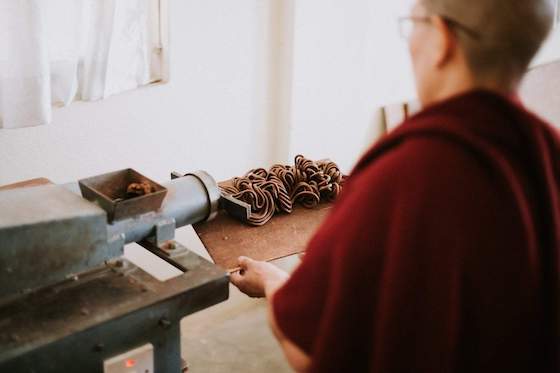
A Tibetan Buddhist nun at Kopan Nunnery extrudes incense into lengths or coils. Photo courtesy of DharmaShop.
Inspiration – Lemongrass and white sandalwood are combined with traditional Tibetan medicinal and aromatic ingredients including Dhupi, Kaulo, and Sil Timur. It comes in a sustainable lokta (daphne) paper box with a small terracotta incense burner and list of ingredients. The style of the incense burner may vary. Each box includes approximately 30 sticks of incense measuring about 5 inches long.
Rhododendron Forest – The ingredients for this very special incense come from trees and herbs in the high mountains of the Solu Khumbu area. The scent is uplifting and refreshing, like a breath of fresh air from the snow-capped mountains of the Himalayas.
Tibetan Nuns Project Incense – Contains a very clean, slightly sweet sandalwood and jasmine, with a hint of nutmeg. A great choice if you are new to Tibetan incense. The scent is a mixture of high-altitude plants and woods with proven healing properties. It invokes the special powers of Medicine Buddha to bring healing of body and mind. (Temporarily out of stock due to the coronavirus pandemic.)
Lotus Blossom – The intensely fresh fragrance of this incense is freshly gathered juniper leaves and berries mixed with cedarwood and sandalwood. Its invigorating scent clears and uplifts the mind. (Temporarily out of stock due to the coronavirus pandemic.)
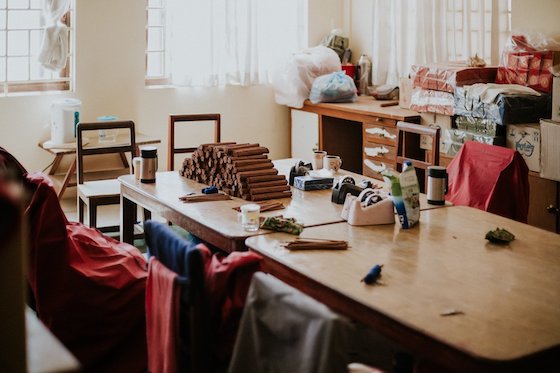
The workroom at Kopan Nunnery where nuns make traditional Tibetan incense. Photo courtesy of DharmaShop.

